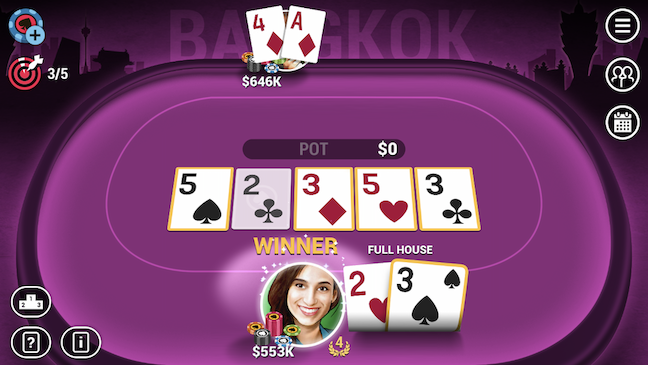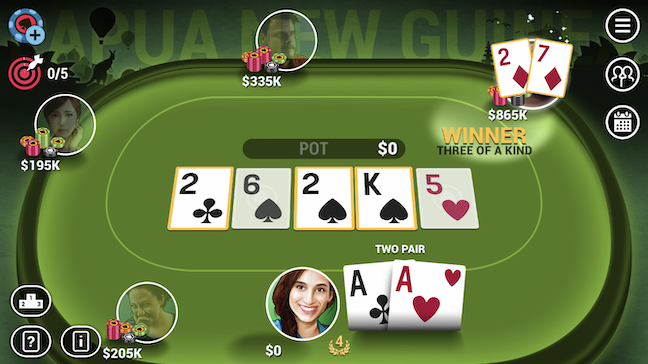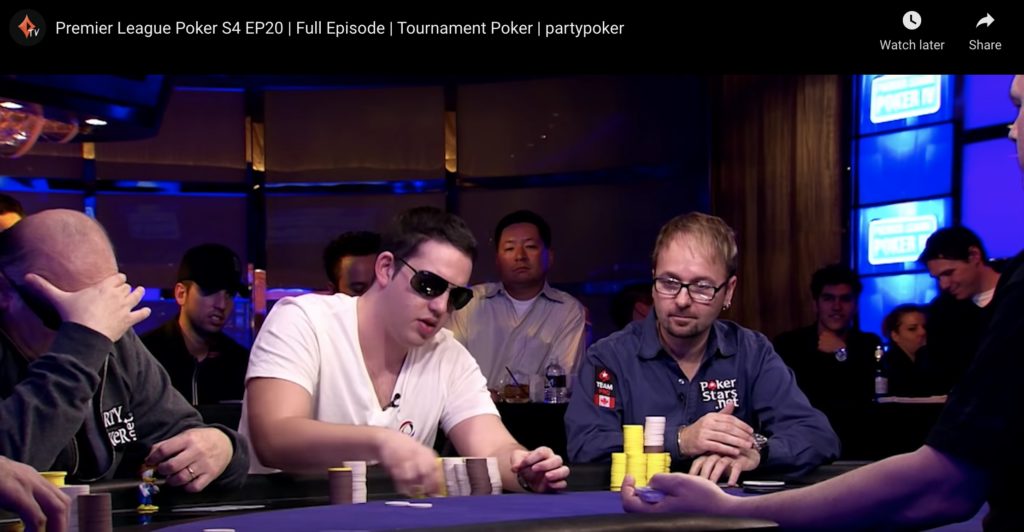Example of pocket aces (statistically the best starting hand) losing to a 7-2 (statistically one of the worst starting hands)—at least the 7-2 were suited! Image from Poker World.
I really enjoy watching (and sometimes playing) poker—Texas Holdem poker, to be precise!
Many people (millions, apparently) watch poker tournaments for the blow-ups and temper tantrums of some of the big stars. One of the biggest tempers out there is Phil Hellmuth (aka, the “Poker Brat”), who has been “honored” with a 2021 PokerStars compilation of “110 Minutes of Phil Hellmuth Blowing Up” and whose latest antics at the World Series of Poker sparked much commentary and debate, such as Bob Pajich’s article, “Bad for the Game, Good for Poker Media?” For some reason, a lot of people love to watch people like Hellmuth flip out at “bad beats” (when you had a higher probability of winning at the beginning, and you end up losing the hand) and “getting rivered” (when you lose the hand because of the final communal table card).
I don’t enjoy watching people lose their minds (along with their bankroll) over a hand of cards. What I love to watch is when someone loses a hand—even if they started with the best hand, or played it perfectly—and they just let it slide. I find watching this style of poker play deeply soothing. Sometimes I feel like I’m in a meditation session when I watch the equanimity on display at these moments!
Daniel Negreanu often (although not always!) provides examples of this style of meditative poker play. Check out his last hand at the final table of the Premier League Season 4 on this YouTube video, starting at 1:02:07 (the hand is over three minutes later, by 1:05:11).
The fact is, poker is different than chess in that it is not a game of “perfect information.” Bluffing and reading the other players’ tells and behavior patterns are a big part of the game: you don’t need to have the best hand in poker to win. But, poker is still a game of probability (not inevitability), and all players are bound by the rules of the game. If you are willing to pay the money, maybe even risk it all, you are allowed to get the full five table cards, and, together with your two “hole cards” (the cards in your hand), you may end up winning. It’s not a bad beat or getting rivered when someone makes the best hand on the final card. It’s just part of the game.
At its best, poker gives me a chance to reflect on life. You can try your hardest. You can make the most of the cards you are dealt. You can play your hand to perfection. And ultimately, you can still lose. Of course, you can also sometimes win against really long odds—so the zen of poker can go both ways! But poker helps me remember that sometimes the outcome of a situation is beyond one’s individual control.
As the great Kenny Rogers sings in “The Gambler,”
Every gambler knows
That the secret to survivin’
Is knowin’ what to throw away
And knowin’ what to keep
‘Cause every hand’s a winner
And every hand’s a loser
And the best that you can hope for
Is to die in your sleep

Example of a long-odds win (3-2 offsuit ends up with a full house, versus suited A-4 that flops a straight)—and that’s poker! Image from Poker World.

